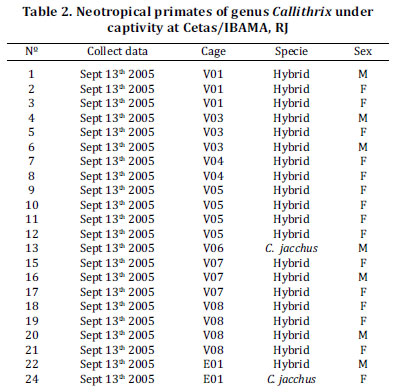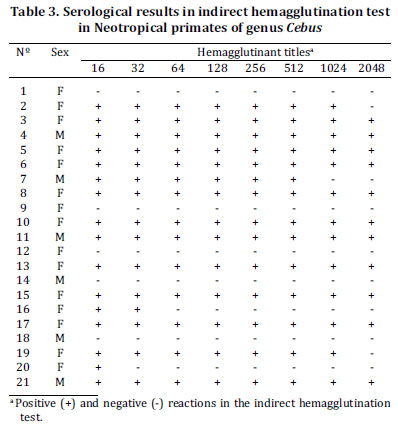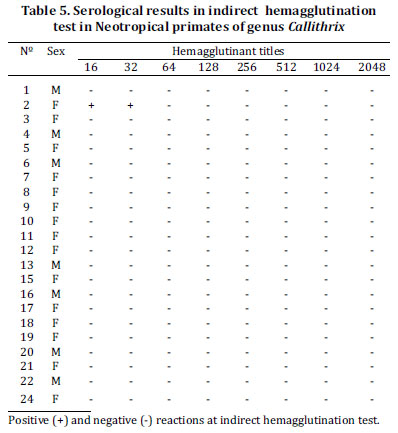Toxoplasma gondii (Nicolle et Manceaux, 1909) is an obligatory intracellular protozoan parasite of warm animals, including human and non-human primates. Domestic and wild felids are considered definitive hosts. Several authors have already identified lesions in New World primates caused by T. gondii. Nevertheless, little is known about serological studies on those animals. With this reason, New World non-human primates of the genera Cebus and Callithrix that were apprehended by governmental authorities and sent to the Wildlife Screening Center (Cetas)/IBAMA, at the municipality of Seropédica, state of Rio Janeiro, were bled and sera were submitted to the indirect hemagglutination test for detection of anti-T. gondii antibodies. From 21 sera of Cebus primates, 76.19% (16/21) had anti-T. gondii antibodies. Titles varied from 16 to 2048. In samples from 21 Callithrix, only 4.5% (1/22) had anti-T. gondii antibodies. Only one animal had a title of 32. During all the time those animals were clinical evaluated until sample was collected; none of them had any clinical sign or sequel related to infection by T. gondii. The fact that the origin of these primates is unknown and that there is no information about their feeding habits before captivity makes it difficult to determine the source of T. gondii infection.
Toxoplasma gondii; Neotropical primates; indirect hemagglutination test





